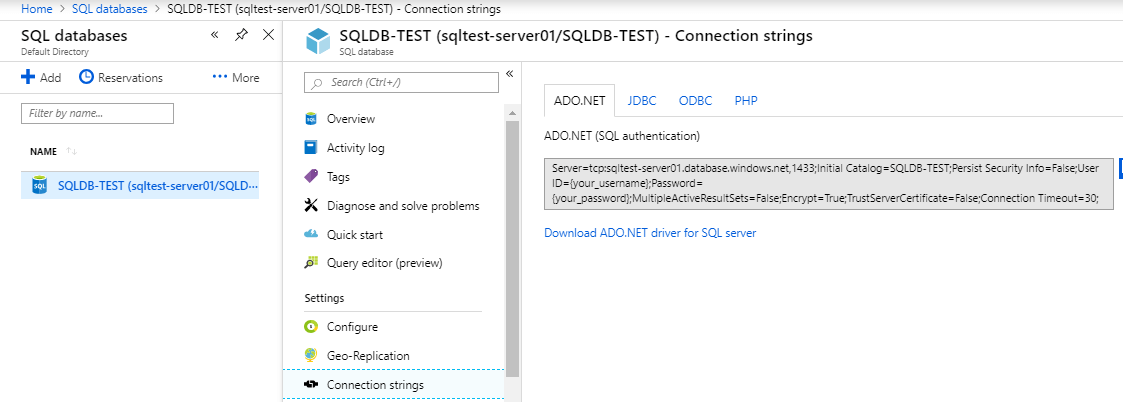
connect ( driver = 'ODBC Driver 17 for SQL Server', server = server, port = port, database = database, uid = uid, pwd = pwd ) stm = ''' SELECT TOP 100 * FROM OPENROWSET( BULK '*/01.parquet', FORMAT='PARQUET' ) AS ''' cur = con. Now you can connect with turbodbc to the SQL-on-demand pool to execute your queries: import turbodbc server = '' port = 1433 database = "master" uid = "testuser" pwd = "xxx" con = turbodbc. bash_profile echo 'export PATH="$PATH:/opt/mssql-tools/bin"' > ~/.
#AZURE DATA STUDIO ODBC INSTALL#
list apt - get update ACCEPT_EULA = Y apt - get install msodbcsql17 ACCEPT_EULA = Y apt - get install mssql - tools echo 'export PATH="$PATH:/opt/mssql-tools/bin"' > ~/. asc | apt - key add - curl https : // packages.

To connect to an Azure SQL-on-Demand endpoint you need to follow the installation of the ODBC driver for debian.

Permissions granted to use the requisite credential.ĭelegation of access to Azure blob storage accounts can be done with AAD pass-through or giving manual credentials CREATE CREDENTIAL WITH IDENTITY = 'SHARED ACCESS SIGNATURE', SECRET = 'sv=xxxx' GO GRANT REFERENCES ON CREDENTIAL :: TO The storage account is an object that is external to SQL Analytics on-demand,Īppropriate credentials are required. SQL Analytics on-demand query reads files directly from Azure Storage. Pools can be accessed though an odbc compatible client from python.įirst you need to grant access to the sql endpoint for an external DB user: CREATE LOGIN testuser WITH password = 'xxx' Azure Synapse SQL-on-Demand offers a web client, the desktop versionĪzure Data studio and odbc access with turbodbc to query parquet files in


 0 kommentar(er)
0 kommentar(er)
